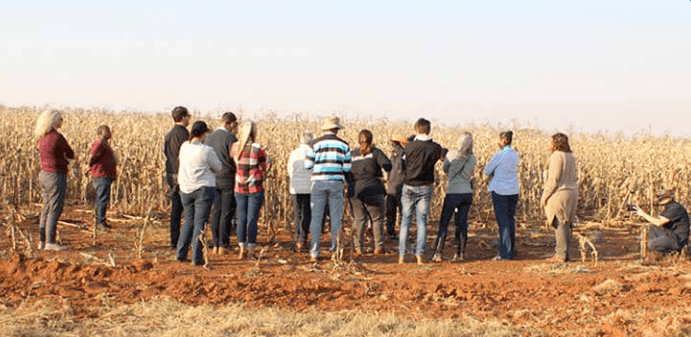Biological solutions are proving to be a valuable tool in integrated pest management (IPM) strategies where low chemical residue levels are required for market access.
Speaking at the first in a series of webinars hosted by the Agricultural Writers SA, Rod Bell, CEO of CropLife South Africa said that there was a concerted strategy in the industry to move towards biological solutions, and that very few export-orientated farmers were solely relying on harsh chemicals anymore.
Biological solutions include those that use plant extracts, microbes and fungi as the mode of action to deter pests.
Donvae Hooker, business communication lead at Andermatt Madumbi, said that when biological controls first started appearing on the market, it took much convincing to show farmer’s that the products worked. “Now, everyone has recognised their impact and how beneficial they are, especially to export crops. Growers listen to growers and we have found that where one farmer started using the products, word and uptake has spread quickly. The importance of root health and the value of building soil health are boosting the use of biologicals.”
Karlien Muller, an entomologist at the Komati Group, noted the increasing scrutiny fruit producers faced when exporting produce to the European Union (EU). This was with regards to the environment, and health and safety of workers. “The audits take into account what chemicals you use, their impact on the environment and the workers who have to administer them. They want to know what our strategy is to reduce chemical usage, while still insisting on zero pest incidence.”
She said that this created significant problems because chemicals could not be used, and biological control does not provide insect-free fruit either. “The solution is to find a way to combine biological solutions with harsher chemicals to get fruit that will pass MRL [maximum residue level] inspections while keeping pests under control.”
Bell said that while such legislation pushed export orientated farmers to reduce their chemical loads, there was little incentivising suppliers of the local market to do the same. “There needs to be a lot more education about the benefits and efficacy of biological crop protection for there to be better uptake in the local market.”
Hooker noted that one of the biggest challenges in expanding uptake for biologicals was the ensuring farmers bought legitimate products, that were then stored and applied correctly. “Much damage has been done to the reputation of biologicals by ineffective products or those referred to as ‘snake oils’. Farmers therefore need to be very cautious in using only tried, tested and registered products.”
While biological solutions do carry a larger price tag than conventional chemicals, Muller stated that rather than worry about the additional cost of biologicals, farmers should ask themselves what the cost would be if they did not switch to softer chemicals. “Every action taken on the farm will either ensure or prevent our future ability to farm there and remain sustainable. For this reason, harsh chemicals alone are no longer an option.”
Hooker added that protecting the current range of chemicals on the market was also important, and this necessitated a diversification of crop protection methods applied on a farm. “Once you take into account the bigger picture you realise what the costs are of not incorporating biologicals.”
Read the original article here >
Agripen_06.2022_-_Biologicals_and_IPM_webinar_overview (1)

